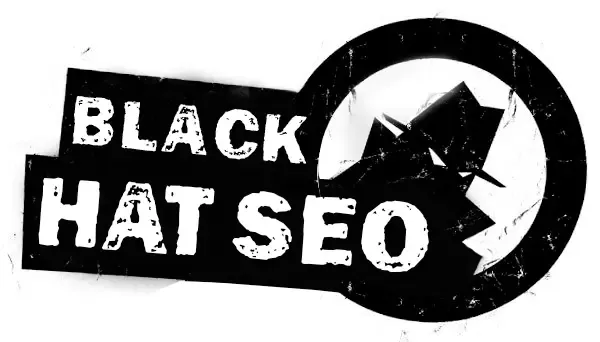What Is Black Hat SEO? Risks and What to Avoid
You've probably heard of black hat SEO if you've looked into the best ways to rank your site on Google and other search engines.
Many people used to believe that SEO is a manipulative marketing strategy that involves "cheating algorithms" and manipulating Google to believe that your website is the best result for a search query. To rank sites, many marketers have used black hat SEO tactics extensively.
On the other hand, Google's algorithms were less advanced at the time. If you don't want to break the algorithm or the Webmaster Quality Guidelines, I'll explain what strategies to avoid in this tutorial.
Table od Content:
- What is Black Hat SEO?
- The Risks and Why Should You Avoid Black Hat SEO?
- What Are the Worst Scenarios if a Website Uses Black Hat SEO?
- How to Protect Yourself From Black Hat SEO Attacks and Strategies?
- How To Report Black Hat SEO?
What is Black Hat SEO?
The employment of various tactics to improve the ranking of your website in
search results is known as black hat SEO. Black hat SEO tactics attempt to
influence search engine algorithms to boost page rank on search engine results
pages (SERPs).
Sending spam to other websites with links, inserting
a large number of keywords in keyword tags, employing invisible text on web
pages, utilizing a false page that only search engine bots see, and more are
examples of such tricks.
Some short definition is: Black Hat SEO
are techniques used to achieve higher search rankings in an unethical way.
In
the past, such methods may have proved useful. If you try to employ such
tactics to boost your website's ranking in search results, search engines like
Google and Bing will punish you severely. Using black hat SEO practices might
result in penalties for your website, resulting in worse rankings and a
decrease in organic visitors.
The Risks and Why Should You Avoid Black Hat SEO?
Google and other search engines may penalize your website if you use black hat
SEO practices. The risks of adopting black hat SEO strategies to rank your
website are high, which is why most SEOs avoid them.
However, the
reality is that there is, and will likely always be, a small percentage of
people who wish to try to manipulate the system to speed up their site's
organic success. Even if black hat SEO strategies work on your website, the
results are often temporary. Google's penalties are becoming more intelligent,
and they can have disastrous consequences for your ranks and traffic.
When we look at Google's Webmaster Guidelines, we can see that they are focused only on the fundamentals of SEO.
What Are the Worst Scenarios if a Website Uses Black Hat SEO?
According to Google's webmaster rules, such infractions may result in the
entire removal of a site from Google's index or other anti-spam action,
whether algorithmic or manual. According to the standards, if a site is spam,
it may no longer display in Google.com or any of Google's partner sites'
search results.
Black hat practices are the polar opposite of SEO,
which aims to increase organic visibility and website traffic. We broke this
down into three main areas to assist you to understand why you should avoid
such tactics:
1. Poor User Experience
SEO must evaluate the user's experience on a website and aim to provide the best
content and user experience possible. Black hat SEO methods, on the other
hand, have the exact opposite effect. Instead of optimizing for users, they
optimize for search engines, or at least what they think search engines want
to see.
To be successful in your search, you must have a high level
of trust. If search engines take precedence over users, the site's potential
to convert is likely to be severely constrained.
2. Impact Your Search Rankings and Visibility
The most important reason to avoid black hat SEO practices is that they
will cause your website to lose search rankings, visibility, and traffic. When
a website's traffic and exposure decrease, conversions and income often
decrease as well.
This might result in a decrease in a company's
revenue, as well as job losses or even closures. At best, a significant drop
in organic traffic will necessitate a bigger expenditure in PPC or other paid
marketing to compensate.
3. Bad Impact Long-Term Results
Even though manipulative tactics initially improve ranking and organic
performance, these gains are rarely sustained. Perhaps the only thing more
frustrating than ranking a site is watching ranks and traffic, artificially
raised, only to fall soon.
While it may take some time for Google
to identify that a site is using unethical practices, this could be due to a
manual inspection or a change to the underlying algorithm, when this happens,
traffic loss is unavoidable.
Black Hat SEO Tactics To Avoid
If you're a beginner in SEO, it might be difficult to determine which methods
to utilize and which to avoid. Many of the
SEO fundamentals
are straightforward procedures, and many of the more complex techniques
necessitate a greater level of attention to detail.
Some advice in
blogs, or social media groups, may appear to be "advanced," but they are only
pointing you toward black hat SEO techniques.
The more you
understand the strategies that could lead to your site's demise, the easier it
will be to recognize and avoid them.
Black Hat SEO Tactics To Avoid:
- Keyword Stuffing
- Invisible Text
- Doorway and Gateway Pages
- Paid Backlinks
- Spam Comments
- Article Spinning
- Cloaking And Misleading Redirects
1. Keyword Stuffing
As the name suggests, keyword stuffing is a strategy that involves
inserting
keywords into text in huge quantities, often out of context. Whether it's blogs, the
front page, or some other webpage, keyword stuffing spoils a visitor
experience and the quality of content on your site in exchange for a
temporary increase in rankings.
Keyword stuffing used to be a
very common occurrence, but due to the excessive abuse of this strategy,
Google updated its algorithm to deal with it.
Today, Google
quickly detects this strategy without any problems.
2. Invisible Text
Another black hat SEO strategy that is often used but never brings the
desired result is the use of invisible text. Invisible text is background
text that is invisible to users but that Google notices.
This
strategy is often used for keyword stuffing, but the user does not see this
text, so it does not affect his experience on the site.
Of
course, today's Google and other search algorithms find this text very easy
and are quick to punish anyone who uses it.
3. Doorway and Gateway Pages
Pages that are set up as bait for search engines to pick up links and
keywords that aren't entirely relevant and are not related to the site (to
which landing pages they mostly lead). Doorway or gateway pages are the
names given to these types of pages.
Examples of Doorway and Gateway Pages:
- Creating pages that funnel readers to a single page to target geographically targeted keywords in places where your organization doesn't have a physical presence.
- Rather than meeting a user's demand, pages designed purely to rank for search queries
Users generally do not have a clear way to access these pages unless
they know the link to one of these pages.
4. Paid Backlinks
Anyone who works in this industry or knows even a little about it
knows that backlinks from authoritative pages are essential for an excellent
ranking. However, many people who work in this industry, whether
deliberately or unconsciously, fall into the trap of buying backlinks.
On
the other hand, dubious SEO agencies primarily use this strategy to fast
obtain backlinks to your site and improve your ranks.
Building quality backlinks
takes a lot of time, and if you notice that the agency you hired comes
effortlessly to dozens of backlinks per month, chances are they are using
this strategy.
While it may seem like a good approach to quickly
get a link to your website in exchange for a fee, this is one of the most
devastating activities.
To begin with, when purchasing links, the
information that is posted on the website is sometimes of insignificant
value to the site's user. With the latest update of algorithms, Google is
committed to eradicating such strategies.
5. Spam Comments
When you run your site, you've probably noticed a bunch of comments
that mostly have nothing to do with the content you posted, which contains a
link to a page. This so-called strategy relies on the use of spam comments,
which are often automated with the help of various tools created for this
purpose.
Although all of the links in the comments have a
no-follow attribute, which implies that Google does not index them,
competitors frequently utilize this tactic in black hat SEO attacks. If the
comment has nothing to do with your article, it is safest to delete it
immediately.
6. Article Spinning
It's not easy to
create amazing SEO content, but it can't be denied that it's still one of Google's top three ranking
factors.
There are now AI Tools that can generate new, unique
articles from a single content by employing synonyms, word order
modifications, and other tactics to convert one text to a new one without
the concern of Google penalizing you for plagiarism.
However,
because technology isn't yet advanced enough to completely replace human
writers, these articles usually don't make sense and are easily identified
by the Google Algorithm.
To avoid issues caused by poor quality
or duplicate pages, take the effort to generate SEO-tailored content.
7. Cloaking And Misleading Redirects
Cloaking is a strategy that involves serving alternate content
or URLs to users and search engines, giving them a unique experience.
This
is a desperate attempt to rank a page based on material written for search
engines while redirecting readers to a different location. Cloaking is a
misleading tactic that is against search engine guidelines.
Misleading Redirects
Using redirects is a regular element of SEO. There's nothing
wrong with that, it's the best way to ensure that your site is
well-organized and accessible to both users and search engine crawlers.
Like
cloaking, black hat SEOs utilize clever redirection to trick search engines
and display material that differs from what a user sees. A search engine
will frequently index the original page while consumers are sent to a
different URL.
Sneaky redirection is particularly listed in
Google's Webmaster Criteria as a black hat technique that breaches the
guidelines.
How to Protect Yourself From Black Hat SEO Attacks and Strategies?
Now that you are familiar with the most commonly used immoral SEO
strategies, it will be easier for you to recognize such strategies on your
own, whether you are unknowingly responsible for them or the agency you
hired.
We'll show you how to defend yourself against black hat
SEO assaults and remove anything from your site that could impact your
ranking in the future.
1. Check the Links to Your Site Regularly
We have already mentioned that buying links from sites with low
authority can harm your site. Whether these are links provided by an agency
you hired or links intentionally posted by your competition to harm you, you
must regularly check the links that lead to your site, using tools such as
ahrefs.com or semrush.com.
If you find such links, contact the
page where they were published and ask the webmaster to remove them. If your
messages don't want it or don't respond, you can use a tool called Google
Disavow.
2. Pay Attention to the Security of the Website and Social Media Accounts
Hackers who come into possession of your password for accounts on
social networks or the website itself can do serious damage in a very short
time, sharing inappropriate content, intentionally stuffing keywords on the
site, and through many other ways.
That's why it's important to
use unique codes that aren't easy to guess. For example, your name, your
business name, or the password you were given at the beginning are generally
not appropriate passwords. It is necessary to use as many characters,
numbers, and characters as possible to make the password harder to break.
3. Set Up Google Alerts for Your Site
Google Alerts
is a useful tool to let you know every time someone mentions your brand or
name, product name, or other names you have protected.
This will
make you notice in time any attempt to abuse the internet, whether it is
stolen content or a mention and backlink from a site that does not have high
authority.
It is better to prevent than to treat, it refers to
SEO, and by noticing black hat SEO activity in time, you will react easier
and faster before you harm these strategies to your side.
4. Track Duplicate and Stolen Content
You don't have to worry if other websites try to steal your content
because Google easily detects plagiarism and quickly recognizes the original
content.
However, if you notice that your ranking has dropped
sharply, it's worth checking to see if someone has stolen your content with
a tool like
Copyscape.
5. Build a Better Reputation for Your Site
If your site enjoys a good reputation on search engines, it will be
much harder to influence your rankings using immoral SEO strategies. The
more you are visible on the internet, whether through your website, social
media, or other major sites that link back to you, the less you will be
affected by black hat SEO methods.
However, it is important to
monitor your site regularly to react in time to bad links, spam comments, or
stolen content. However, if your content is relevant and brings you a lot of
traffic, black hat SEO will hardly hurt you. Therefore, this is the best
method of protection.
6. Be Careful Who You Hire to Develop Your SEO Strategy
Be careful if you choose a marketing agency without references, that
isn't referenced online in a positive or negative light, or that promises
amazing results for an even greater price. Always inquire about the agency’s
reputation and employee qualifications before you decide to hire an agency
to take care of your site.
Don’t hesitate to take as much time as
it takes to inquire about them, hear the experiences of others, or find
comments about them online. The only way to protect yourself from black hat
SEO attacks is to have partners who will help you rank high and build a wall
of trust that even the most brutal attacks will not breakthrough.
How To Report Black Hat SEO?
You may report black hat SEO for one of two reasons. Either your website has
been hacked, infected with a virus, or has been subjected to a spammy
link-building campaign, or you are seeing spammy web results for a
competitive phrase that your website is ranking for. You can webspam reports
through Google Webmaster Tools. Please use caution when using this tool.
Black hat SEO is also the practice of falsely reporting spam on the
internet.
If your website has been hacked, viruses, or infected with
malware, you should request a malware evaluation once you've removed the
harmful code.
If your website is the target of a spammy
link-based negative SEO campaign, utilize Google Webmaster Tools'
Disavow Links Tool
after contacting the webmasters who are referring these links to your site
to get them removed.







